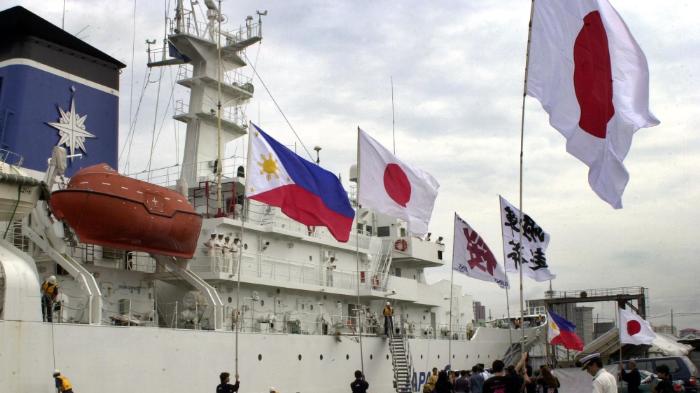Japanese Prime Minister Shinzo Abe arrived for his third Philippine visit, on Wednesday, November 18 for a regional meeting with other Asia-Pacific Economic Cooperation leaders. His plane landed at the Ninoy Aquino International Airport at 11:15 AM.
President Aquino held bilateral meetings with United States President Barack Obama, Prime Minister Malcolm Turnbull, South Korea President Park Geun-hye and Russian Prime Minister Dmitry Medvedev who filled in for President Vladimir Putin ahead of APEC plenary sessions. President Aquino and Prime Minister Abe are scheduled to meet and finalize a deal to transfer military equipment to the Philippines. Although the Philippines was one of the countries brutalized by the Imperial Japan during the Second World War, both countries have created a very strong partnership from the past years and more so in succeeding years.
Japan and the Philippines agreed to improve security ties and the transferring of military equipment and technology. Abe has to negotiate a “legal arrangement” with the Philippines to embark on the first direct provision of military equipment as the Japanese government has a firm regulation in exporting equipment and needs legal arrangements to do so.
Tension in the West Philippine Sea Strengthens Japan-Philippine Military Ties
Philippines has filed an arbitration case against China challenging China’s massive claim on the South China Sea or most commonly referred to as the West Philippine Sea, referring to the United Nations Convention on the Law of the Sea (UNCLOS). China’s claim is based on historic rights and the so called “nine-dash line.” China has refused to partake with the said proceedings, demanding on bilateral talks to settle territorial disputes with the Philippines instead. Japan has expressed its support towards the Philippines decision to bring it to an arbitrary tribunal.
It is a fact that Japan has a pacifist constitution and under Article 9 it is restricted to engage in a war. But Prime Minister Abe seeks to ensure that the Japanese is capable of defending itself if China decides to take military action due to Senkaku islands territorial dispute and China’s aggressive response in the South and China Seas. So, rather than challenging Beijing by directly sending warships to patrol South China Sea; Japan is establishing the military capacity of neighboring nations in the region that has territorial disputes with the said country and to strengthen cooperation with Southeast Asian countries in an attempt to counter China’s maritime ambitions.
Meanwhile cooperation between Japan-Philippines might bolster the Philippines advantage towards the China, in hope that the combined forces of Japan and U.S will cease China’s aggressiveness towards the disputed island.



























